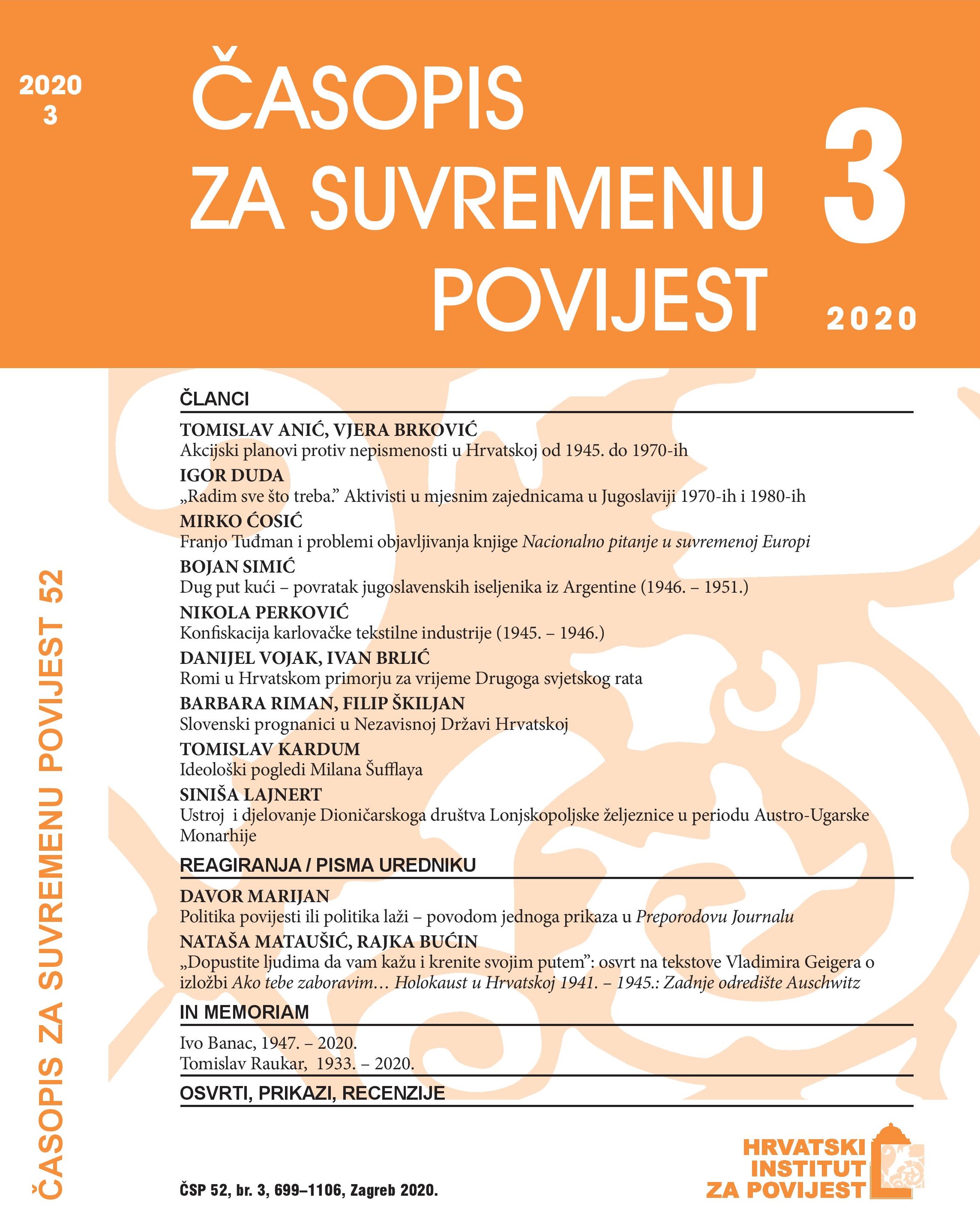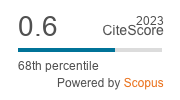Milan Šufflay’s Ideological Views
DOI:
https://doi.org/10.22586/csp.v52i3.10804Keywords:
Milan Šufflay; anti-modernism; organic nationalism; Croatian nationalism; geopoliticsAbstract
The paper attempts to explain Milan Šufflay’s ideological views in a broader European context of anti-modernism and counter-Enlightenment tendencies. Milan Šufflay was a critic of the modern world and its manifestations. His views were similar to other counter-Enlightenment thinkers such as Oswald Spengler, Henri Bergson, Gustave Le Bon, etc. Šufflay despised individualism and rationalism, and admired collectivism and power of the myth. Šufflay thought that the answer to problems of the modern world lay in a return to medieval values – i.e. spiritual values against material values, which were predominant in his time.
Šufflay’s anti-modernist views were closely connected with his nationalism. He was a proponent of organic nationalism and claimed that a nation is a community of the present, former, and future generations. In his works, he stressed the importance of historical memory, culture, geography, and race as factors in the shaping of the nation. He emphasised the Catholic faith of Croats and Occidentalism, which he claimed manifested through the whole of the nation’s history and should therefore be represented in the collective memory of Croats. In that sense, Šufflay’s views were similar to those of Croatian interwar nationalists (e.g. Filip Lukas), and he also constructed Croat national identity vis-a-vis Yugoslavism. Because of the great differences between Croats and Serbs, Šufflay claimed that Yugoslavia was an artificial and unsustainable state.
Šufflay’s geopolitical insights were also connected with his essentialist vision of the two perennial antagonistic camps – East and West. In that sense, he anticipated Samuel Huntington’s idea about the Clash of Civilizations. Šufflay thought that sort of apocalyptic clash between the West, led by an ‘Anglo-American bloc’, and the East, led by China and India with the Soviet Union as their ‘vanguard’, was approaching. In that clash, Šufflay argued, the Croats must ally themselves with the West, as they had done throughout their entire history.
Downloads
Published
How to Cite
Issue
Section
License
Copyright (c) 2020 authors and journal

This work is licensed under a Creative Commons Attribution-NonCommercial 4.0 International License.
Copyright holders are the publisher Croatian Institute of History and the authors. Journal of Contemporary History is an Open Access journal. Users are allowed to read, download, copy, redistribute, print, search and link to material, and alter, transform, or build upon the material, or use them for any other lawful purpose as long as they attribute the source in an appropriate manner according to the Creative Commons licence CC BY-NC. The papers published in Journal of Contemporary History can be deposited and self-archived in the institutional and thematic repositories providing the link to the journal's web pages and HRČAK. Journal does not charge article processing charges (APC). The editors assume no responsibility for statements of fact or opinion made by contributors.




